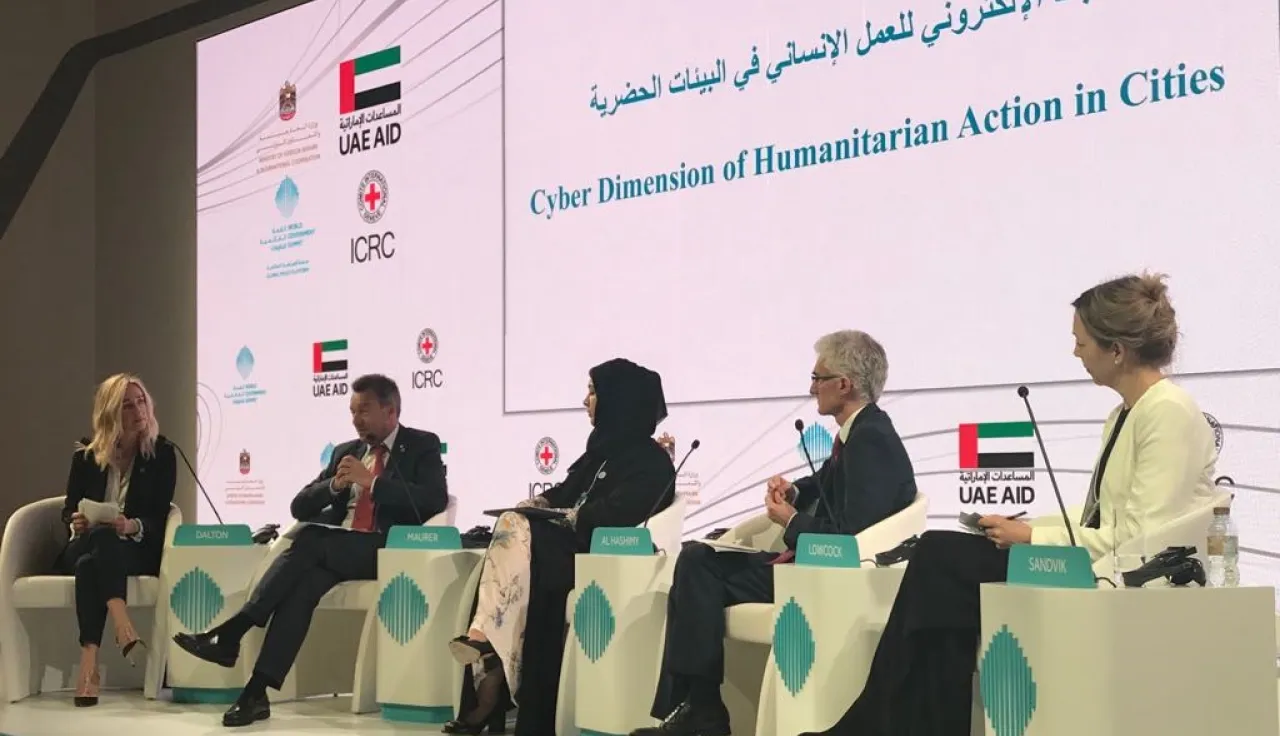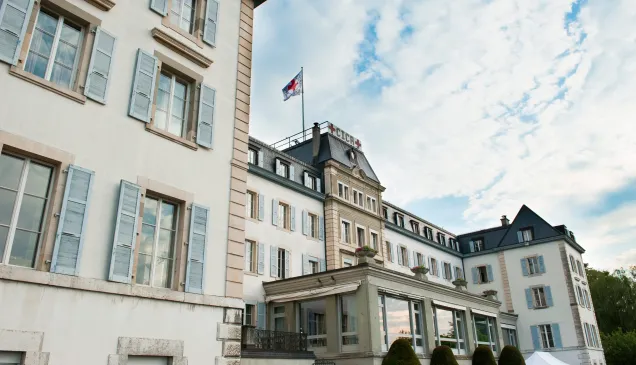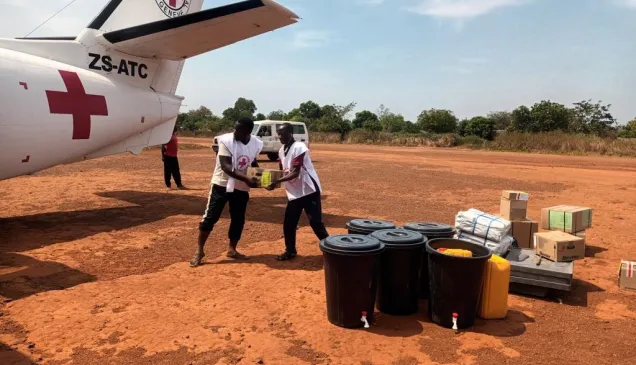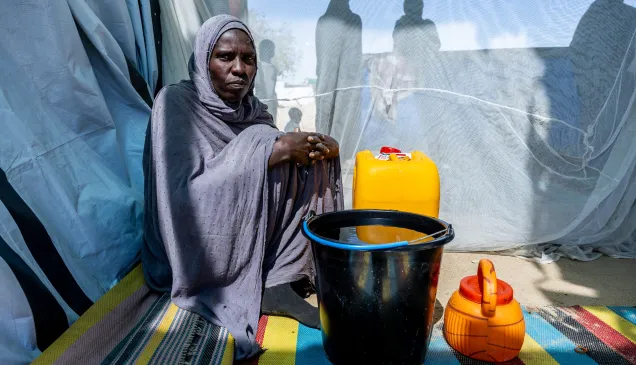Cyber Dimension of Humanitarian Action in Cities

©ICRC
On 11 February 2018, the ICRC and the UAE Ministry of Foreign Affairs and International Cooperation (MoFAIC) jointly organized a side-event entitled the 'Cyber Dimension of Humanitarian Action in Cities' within the Global Policy Platform of the World Government Summit (WGS) in Dubai, in the UAE. The panel discussion, attended by a variety of key international and local actors, aimed to reflect on how world leaders can take stronger action to effectively address the global challenges of urban humanitarian action in cyber domain.
Some predict that by 2030, two-thirds of the global population will be living in cities. In parallel, reflections on the importance of cyberspace are gaining momentum as we see a number of emerging threats, including cyber warfare. These developments affect the dynamics of armed conflicts and the nature of humanitarian action. They raise fundamental questions around humanitarian action within cities and how privacy, data protection and digital governance will be revolutionized by these developments. Cyber warfare and urban warfare are governed by international humanitarian law, but how can we better respond to the humanitarian consequences of cyber warfare in cities, such as attacks on electric power systems? How should humanitarian organizations regulate their use of new technology, data collection and management? How can cyber domain influence current humanitarian model and humanitarian ethos?
These questions were at the core of a panel discussion that brought together the Minister of State for International Cooperation in the UAE, Her Excellency Reem Al Hashimy, the President of the ICRC, Peter Maurer, the United Nations Under-Secretary-General for Humanitarian Affairs and Emergency Relief Coordinator, Mark Lowcock, as well as Peace Research Institute Oslo Research Professor Kristin Bergtora Sandvik. The event examined the topic from a multidisciplinary approach presented by the different panelists. Additionally, the event opened the floor to the audience who contributed to the discussion through questions and remarks.
Since 2013, the WGS brings together around 4,000 attendees from over 130 countries, including senior government officials, policymakers, leaders from the private sector and key international influencers to "explore the future of governments and address the global challenges in a sustainable and innovative way". High-level speakers and panelists from different backgrounds are regularly invited to this event, including senior officials from IMF, World Bank, OECD, WEF and UN representatives.
The event was part of the ICRC's Conference Cycle on War in cities.
Moderator
- Clare Dalton, Head of Humanitarian Diplomacy, ICRC
Panelists
- HE Reem bint Ebrahim Al Hashimy, UAE Minister of State for International Cooperation, MoFAIC
- Peter Maurer, President of the ICRC
- Mark Lowcock, Emergency Relief Coordinator, UN Under-Secretary-General for Humanitarian Affairs, OCHA
- Kristin Bergtora Sandvik, Research Professor, Humanitarian Studies at the Peace Research Institute Oslo



